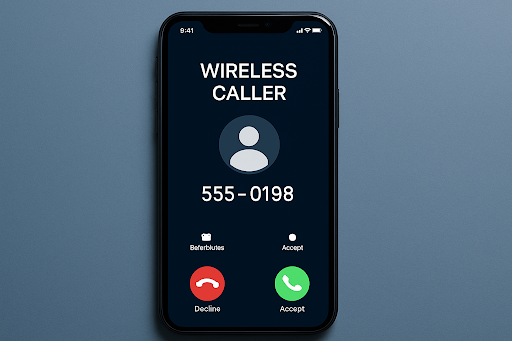
One day, you are just relaxing, and all of a sudden, your stomach starts making some noises. Now, that may be the sign to goeat something, or after you have had your meal, all the digestion will be at work.
But then you notice that something strange is happening. The sounds may be too excessive, and you may start feeling other symptoms, too. And you wonder, could that be a sign of something serious?
Well, don’t worry because we are here to shed light on all of this. We will show what it is all about, whether it’s something to worry about or not, and give you some helpful tips in the end that will make this problem disappear.
So let’s go and get to the bottom of this, shall we?
What is Normal and What’s Not?
The maintenance of the human digestive system is an ongoing, normal process, and the noises that you hear in the stomach are scientifically known as borborygmi.
These noises gurgle, rumble, or growl due to all the activity of the intestines as they move all your food and other types of liquid along with the gases.
Common Causes for This:
- Hunger: An emptier stomach gathers contractions, which are accompanied by rumblings.
- Digestions: The act of closing one’s intestines produces noises as they carry out their work on digesting the food.
- Gas Movement: Shifting bubbles of gas running through the intestines may gurgle.
- Dietary Changes: Some foods increase turbulence in the gut, causing uproar; some examples are beans or dairy products.
- Irritable Bowel Syndrome: Another frequent reason for extra sounds in the gut, in addition to bloating and irregular bowel movement.
Could Stomach Noises Be a Sign of Bowel Cancer?
The condition that doctors call bowel cancer exists as colorectal cancer, which develops inside the colon or rectum.
It emerges when cells in digestive tissues multiply at an uncontrollable rate after developing from initial polyp growths.
Bowel cancer results in neither stomach noises directly nor does it initiate them, but it causes changes to gastric functioning that may produce strange digestive sounds.
Here’s how:
Bowel Obstruction or Narrowing
Gurgling or high-pitched sounds occur when the passages of the intestine are partly blocked by tumors in the colon. This abnormal sound is because of the struggle made by the food trying to move through.
Progressing toward complete blockage produces bowel sounds or their absence entirely, which is a red flag for emergency medical attention.
Changes in Digestion Activity
Bowel cancer can disrupt regular physiological movements, producing erratic digestion that might manifest through excessive gurgling or prolonged silence.
Some patients report symptoms that alternate between diarrhea and constipation. Therefore, it would also alter the gut sounds.
Lots of Gas Buildup and Bloating
Feelings of bloating and increased abdomen sounds come into play upon gas accumulation by the tumor that becomes a true cancerous one.
If abdominal bloating occurs unremittingly along with pain and altered bowel habits, consult a physician for further evaluation.
These factors can be associated with bowel cancer, but alone, stomach noises cannot tell us for sure that one has the disease. Instead, the focus should be on the bigger picture, and other warning signs should also be identified.
What are Other Different Symptoms to Watch Out For?
If the cause is genuinely stomach noises or a rumbling in the stomach because of weak contractions in patients with abdominal adhesions, consider this:
Stubborn Changes in Bowel Routine
You have diarrhea, solid constipation, and other strange activity that lasts for weeks.
Blood in Stool
You have very bright red or dark stools, which can be a sign of blood in your digestive tract.
Sudden Weight Loss
You have no idea why you lost a lot of weight in such a small amount of time without any new diet or exercise.
Continuous Abdominal Pain or Discomfort
You have cramps and other feelings of uneasiness that don’t go away.
Feeling Like You Still Haven’t Emptied Your Bowel
You always want to go back to the toilet as soon as you are finished because you feel that there is something in there that is not coming out.
Feeling Weak
With a rising chance of bowel cancer, you can have Iron deficiency, which can make you feel weak and tired all the time.
So just to be clear, if you are experiencing any of these issues, then you have a reason to worry.
Seriously, you need to get it treated really early. Otherwise, it can be a very big problem for you if you ignore it and think it’s nothing to worry about. Just don’t
Who is at Risk? Understanding Important Factors
No one is safe from this disease, but there are certain elements that can speed up this process for those who fit its certain requirements.
Let us see what they are:
The Age
Most patient populations that suffer from this disease are over 50 years old, although younger individuals maintain their susceptibility.
Family History
Your risk increases if any family members such as parents or siblings experienced bowel cancer.
Food and Eating Lifestyle
Eating a few fibers and many processed meats as part of the diet can heighten the danger level.
Primary risk factors for colon cancer include poor exercise habits combined with obesity and smoking, as well as heavy alcohol consumption.
Already Existing Conditions
If you have any other issues like inflammatory bowel problems, then the stakes will go even higher here.
So, knowing all these points here you need to make a decision. If you delay, it could prove fatal.
When Should You See a Doctor?
If you are concerned about loud or unusual stomach noises, when should you seek medical advice? Here are a few reasons why you should do it:
Whenever Noises Come With:
A significant alteration in the pattern of bowel movements.
Blood in stool.
Unexplained weight loss.
Severe or ongoing abdominal distension and pain.
All of a Sudden You Don’t Hear Stomach Noises:
If you are thinking, thank God it is all over. Don’t celebrate yet. This can be a sign that something is blocking the whole normal process.
So, How Do You Prevent It?
You might be worrying and wondering what you should do. Well, no need to fret.
We have some of the best pieces of advice lined up just for you to minimize this inconvenience and help you live a life full of comfort.
Here they are:
Eat a High-Fiber Diet
Consuming whole grains with fruits, vegetables, and legumes improves healthy bowel movement regulation.
Stay Hydrated
The intake of adequate water supports digestive function, which in turn avoids constipation.
Exercise Regularly
The human body uses physical exercise to activate digestion while enhancing movements within the digestive system.
Consuming Less Processed Foods with Red Meat
Limit your intake of fast food, processed meats, and high-fat foods to decrease your risk of cancer development.
Manage Stress
The effect of stress on digestion requires relaxation techniques like yoga or meditation.
Get Regular Screenings
People beyond age 50, along with those with a family history, should undergo regular screenings to detect problems at an early stage.
Conclusion: Should You Worry About Stomach Noises?
Stomach noises are usually perfectly natural occurrences. However, if the noises are accompanied by constant changes in digestion, unexplained weight loss, or visible blood in the stool, then seeing a physician may certainly be a smart move.
Bowel cancer is a serious disease, but detection at an earlier stage can save your life.
So, make your gut health a priority now. If things have been going on forever, get it checked out so that your mind can be at ease.
FAQs
Q: Can bowel cancer cause loud stomach noises?
A: The fact is that it does not cause all noises; however, it could have an influence on how the stomach system works.
Q: So what are the signs that can show if the situation is serious?
A: Hurry to a doctor if you see any blood, sudden weakness, or extreme pain.
Q: Should I be worried if everything suddenly goes silent?
A: Complete absence of bowel sounds may signal obstruction, which is critical and warrants immediate medical attention.

